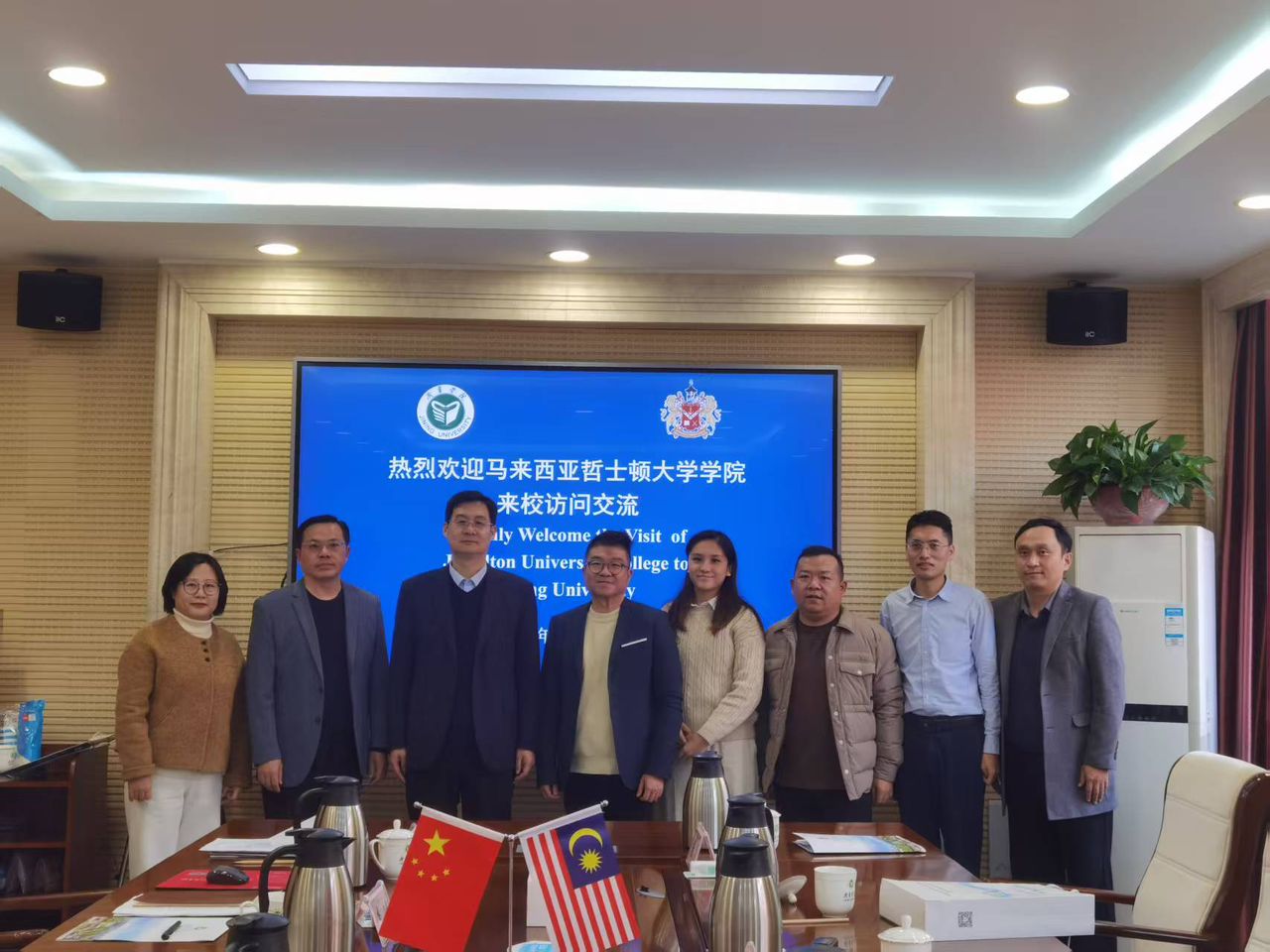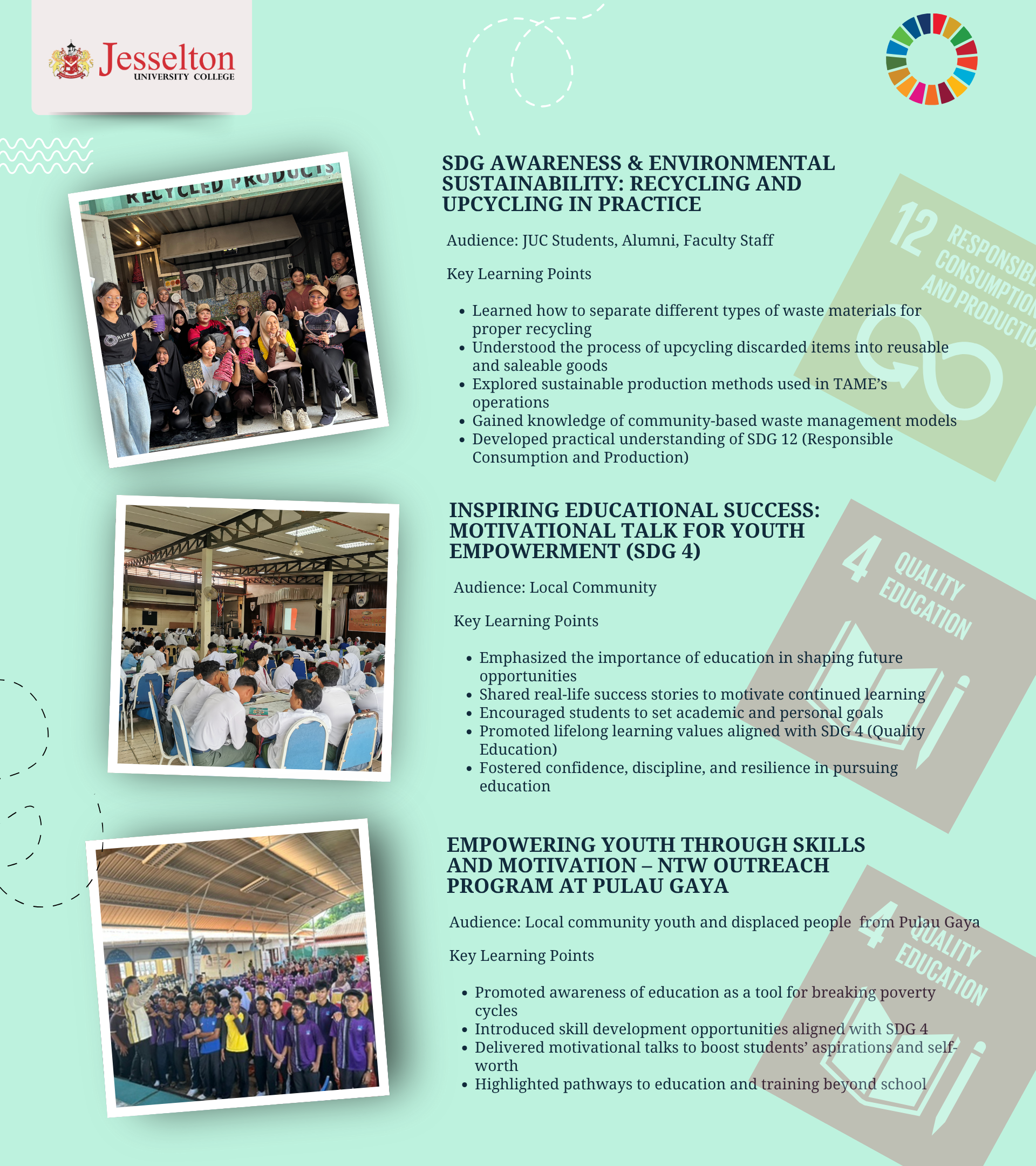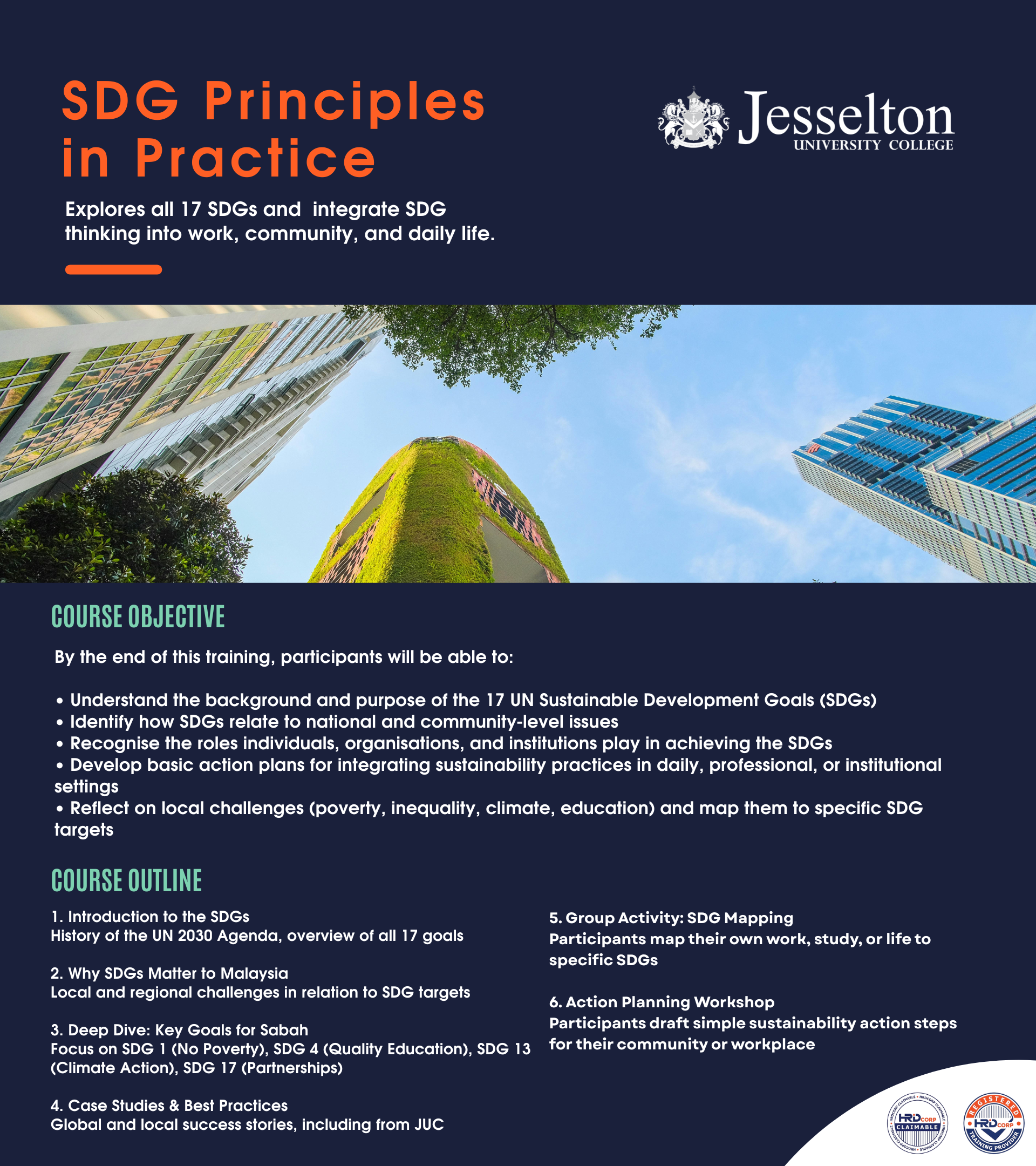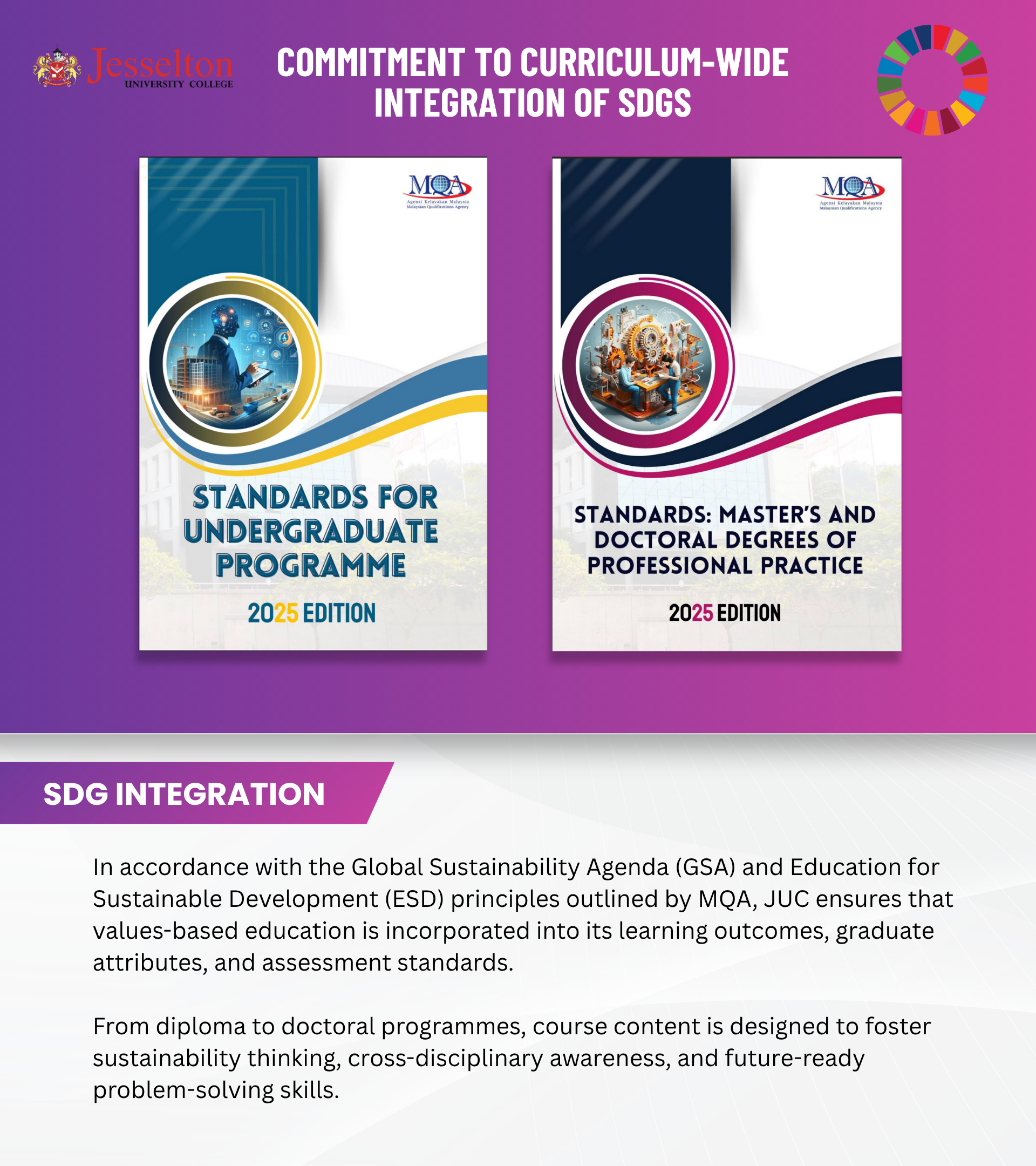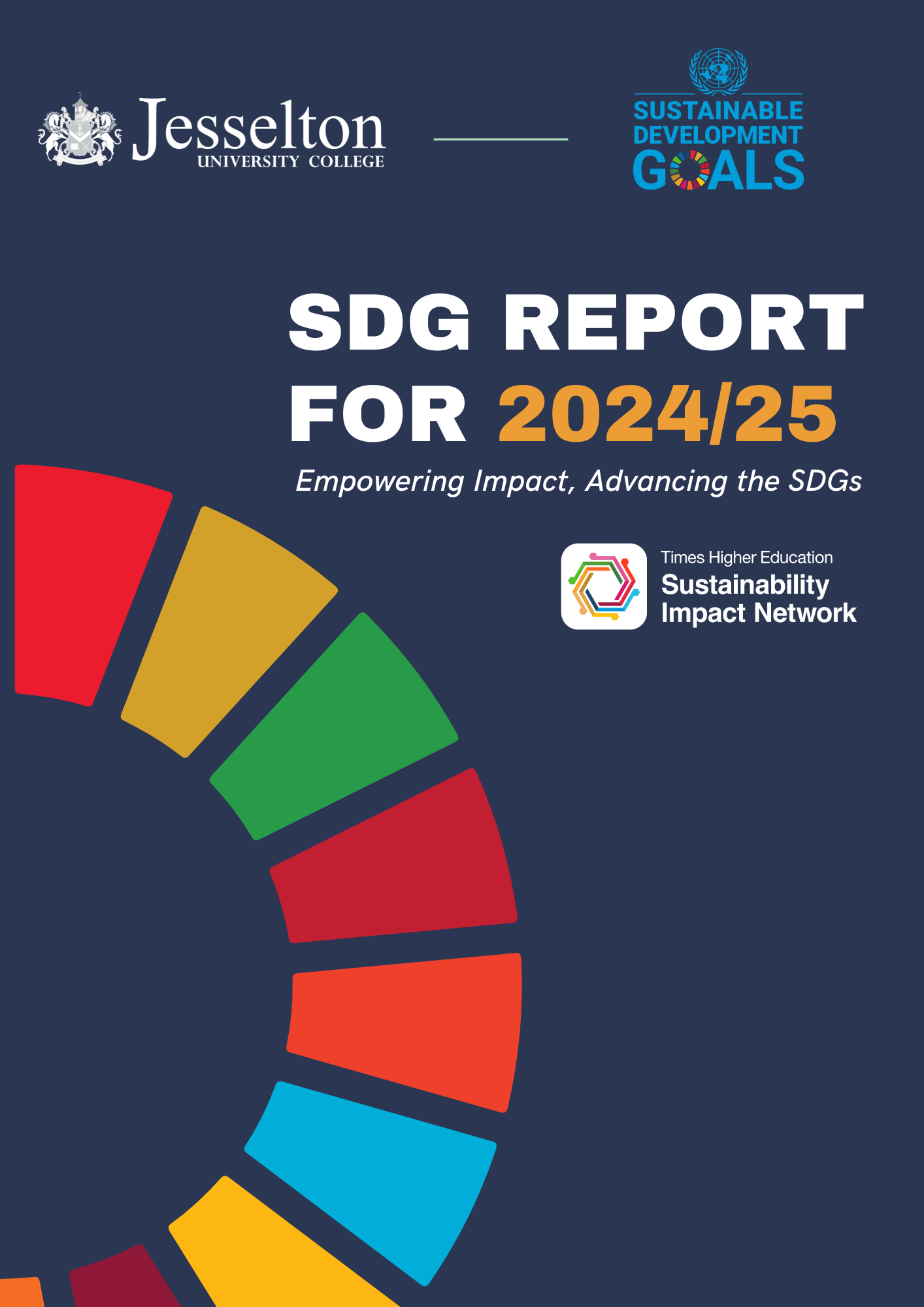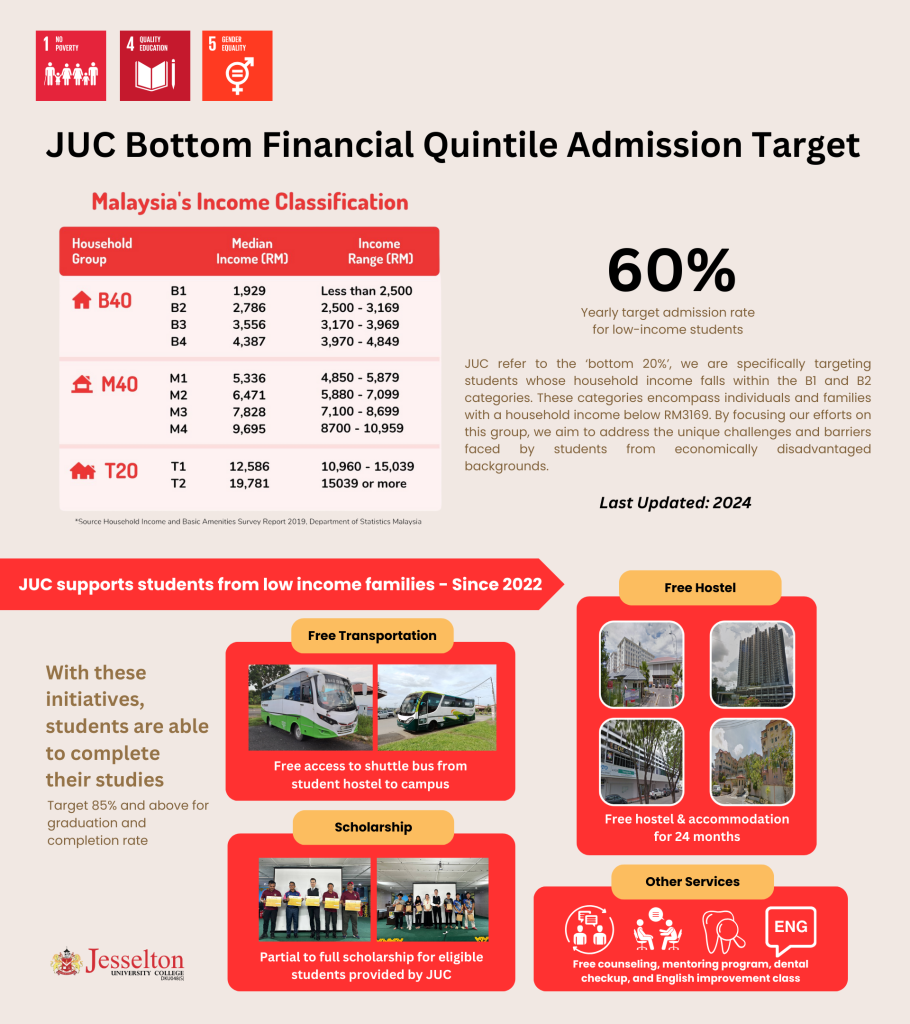
Jesselton University College (JUC) has implemented a clear and targeted admissions policy to increase access to higher education for students from the bottom 20% of household income groups in Malaysia. This effort is grounded in our institutional mission to empower underprivileged communities through education and is aligned with national economic classifications and the United Nations Sustainable Development Goals (SDGs).
We have formally established a yearly admission target of 60% for students whose household income falls within the B1 and B2 categories of the B40 group, based on the official income classification by the Department of Statistics Malaysia. These two categories represent households earning less than RM3,169 monthly. JUC defines these students as belonging to the Bottom Financial Quintile, those most economically at risk of being excluded from quality tertiary education.
This target has been in place since 2024 and will remain part of our long-term strategic planning through 2030, ensuring continuity in our commitment to poverty alleviation and equitable education access. It is not a one-time initiative, but a standing institutional benchmark monitored by the university’s Student Development and Admission Committee, with progress reviewed annually and reported internally and externally.
These support mechanisms directly enable students from the lowest income groups to complete their higher education journey successfully and graduate with employable skills, regardless of gender, age, or background. The initiative has proven effective in not only admissions but also increasing retention and completion rates, with a target of 85% graduation for low-income students by the time they complete their programs.
Through this sustained effort, JUC actively supports SDG 1 (No Poverty) by alleviating educational cost burdens for low-income families, SDG 4 (Quality Education) by ensuring inclusive and equitable access to tertiary education, and SDG 5 (Gender Equality) by ensuring that all initiatives are equally accessible to women from low-income backgrounds.
We firmly believes that economic hardship should never be a barrier to education. Our bottom financial quintile admission target reflects a deeply rooted institutional responsibility to ensure that every deserving student has the opportunity to thrive, learn, and lead, regardless of income.

